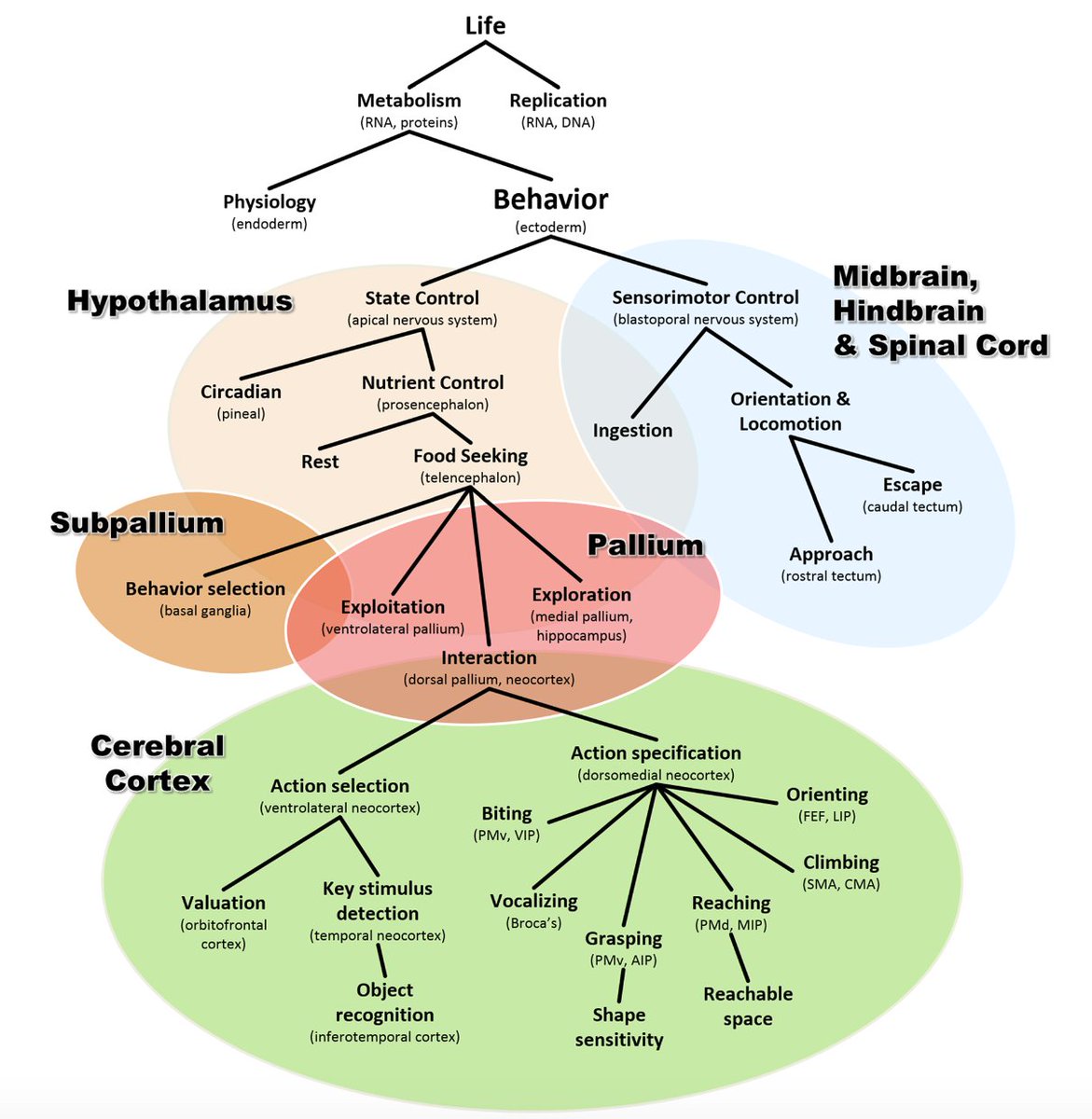
It has been proposed that the brain deals with 4 kinds of semantics. Referential semantics, combinatorial semantics, emotional-affective semantics, and abstraction mechanisms. cell.com/trends/cogniti…
Bohm's Rheomode levate, vidate, dividate, reordinate which are abstract cognitive processes overlap but don't align with these semantics. Combinatorial and emotional-affective fits under levate. Referential and abstraction fits under reordinate.
I suspect that because Peirce ideas were 100 years old and have been adopted by many over the years, the idea has been crystalized into a form that has lost some generality.
Bohm's Rheomode is a generalization of thinking processes but without the historical baggage that has attached to the words that Peirce had originally coined.
A difficulty in developing a language to express cognition is that it's unavoidable to use words that have historical meanings. The advantage of Rheomode is that like Gibson's affordance, these words are entirely new and thus less prone to misinterpretation.
If we are to understand representations, we need to understand semantics. But to understand semantics, we have to understand cognitive processes that extract these semantics. To understand cognitive processes we have to understand their place in evolution.
I argue that semantics are defined relative to model of self. However, the cognitive processes exists for all models of self.
Note that every evolutionary process (as identified by a verb in the diagram) is a derivative and specialization of the process that came before it. This means, it inherits the original process and refines it for an environmental niche.
• • •
Missing some Tweet in this thread? You can try to
force a refresh





